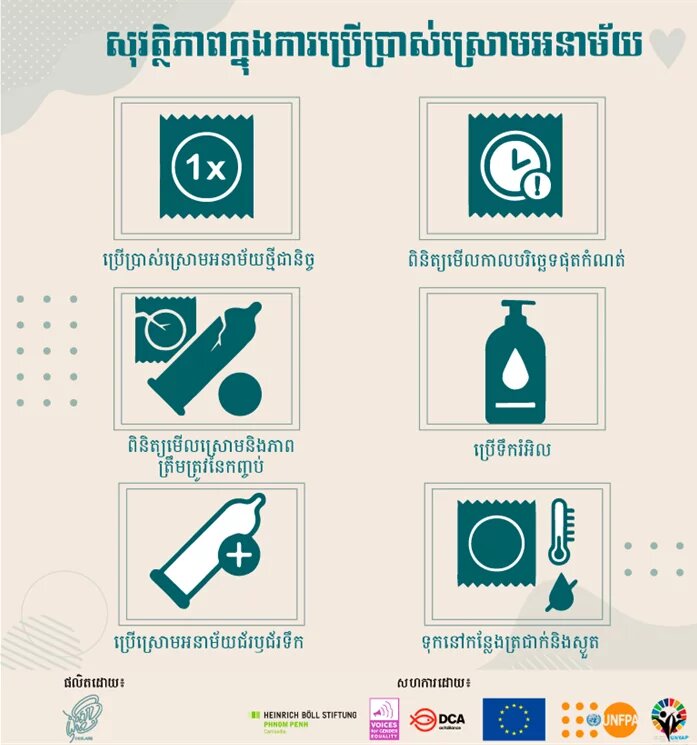Talking about sex, pregnancy, abortions or menstrual health is rarely handled well in our homes or society and is often dealt with as an uncomfortable or stigmatized experience that everyone would rather ignore than deal with. In Cambodia, some of these moral and societal norms come from traditional diktats like chbap srey which sets out a code of conduct for women and explicitly shames their sexual activity.

Additionally, some governments have failed to make discussions about sexual and reproductive health part of state policy — again shrouding these conversations under a veil of mystery or shame or moral policing.
Clear communication on these issues is critical for young people who are often left to understand sexuality, birth control, contraception or abortions on their own. Close to 40% of Cambodia’s population is under the age of 25, with a majority of them in the critical age bracket of 10 to 25 years which is when educational interventions in sexual and reproductive health are affective.
At a time when social media and video streaming are the fastest ways to capture the youth’s attention, the Cambodian government and health agencies are using them to increase awareness of health issues affecting young people, but not as much to promote sexual and reproductive health and rights.
Dosslarb is seemingly far ahead in using these mediums to reach young social media users, discussing a variety of issues like talking to your partner about using contraception, menstruation, sexual activity and behaviors.
The group was founded by three young Cambodian women who have studied communications and media management. Bun Saosopheakneth, one of the founders, says it is not a secret that most young people do not know how to deal with consent, unsafe abortions or sexually transmitted infections, nor do they have anyone to go to for this information.
She says the trio wanted young people to have information that was easy to assimilate and to make existing resources accessible so that people did not feel lost in understanding an issue they were facing.
“We envision a Cambodia where every young person possesses the knowledge and confidence to prioritize their sexual and reproductive health, free from stigma and misinformation,” says Saosopheakneth.
The group also works with other health organizations to deliver clear and accurate information about sexual and reproductive health — the aim being to strip away any shame or stigma attached to conversations that should be open, informative and focused on the health of young people.
This article is an excerpt from "Profiles of Courage." Click here for the full reading.